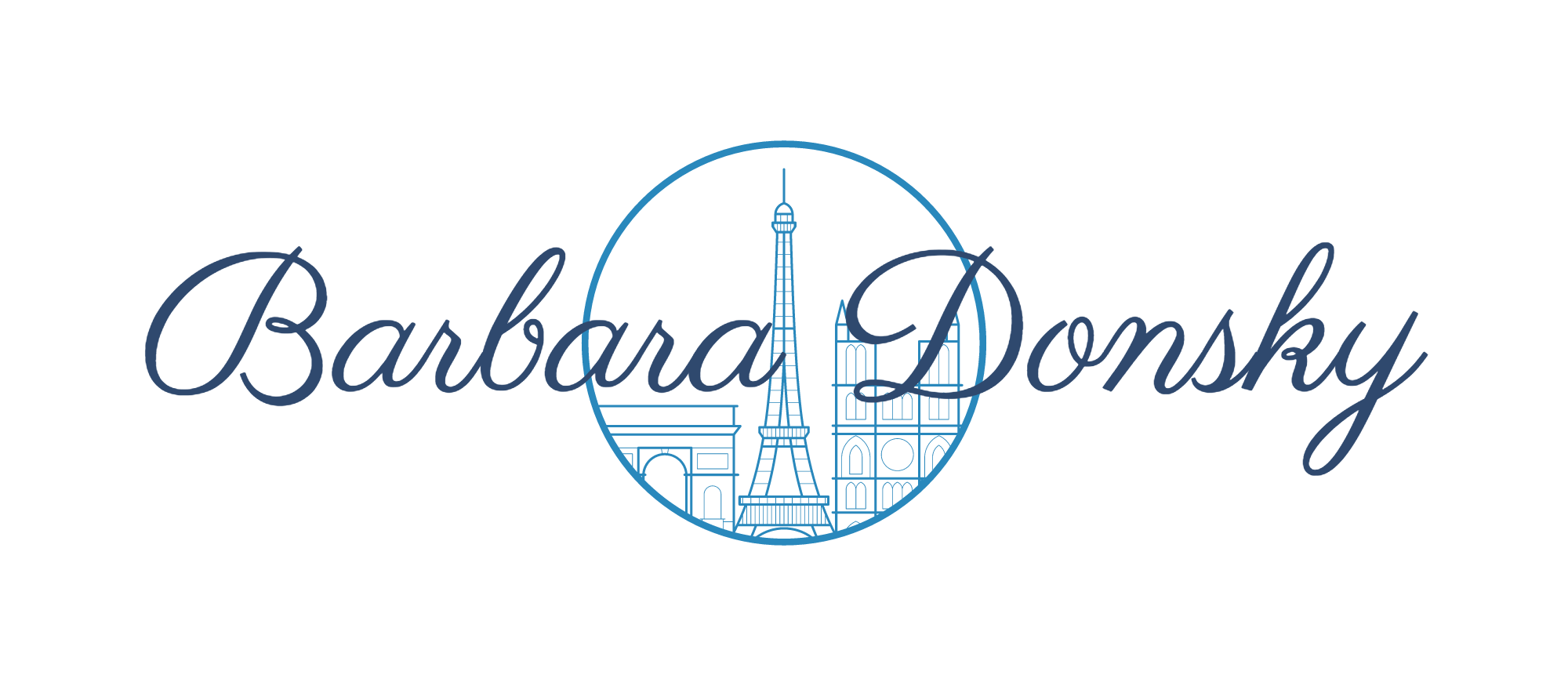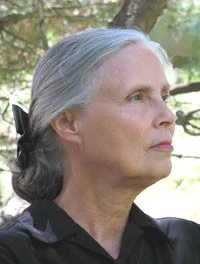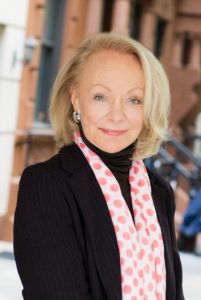Diana Paul | Retirees Reinventing Themselves
Hi Guys and Gals!
What follows is an inspirational article by my friend Diana Y. Paul that appeared in the literary journal Women Writers, Women's Books. Having previously written three books on Buddhism, Diana published (She Writes Press 2015) a highly-praised debut novel, Things Unsaid. Ranked #2 in the “Top 14 Books about Families Crazier Than Yours,” Things Unsaid was nominated for a Pushcart Prize.
Struck by how many other women were reinventing themselves after retirement, she interviewed a number of authors. The overriding consensus? Yes, Virginia, there is life after retirement... a fulfilling life, at that. Read on.
Diana Y Paul
As a debut novelist after retirement at the age of 55, I’ve been intrigued by the increasing number of retirees reinventing themselves as authors. Perhaps some of us have been scribblers all our lives but had to wait until the day job allowed writing to happen.
Others wrote all along, some professionally, and just wanted to devote more time to writing or to experiment with a new genre.
Although some of us come to the role of author later than others, many of us very likely had a passion for writing decades before we dove into this wild territory of novels and memoirs.
I’ve interviewed five authors (three novelists and two memoirists) on their experiences and advice to others who may be considering embarking on this adventure. I’ve also added my own comments. Rebirth as a writer is a wonderful adventure!
Have long have you wanted to write?
DYP (Diana Paul—author of Things Unsaid)
I have always written–for my high school and college newspapers as a student, essays and short stories for my own pleasure, and also as a professor at Stanford University.
Matilda Butler
MB (Matilda Butler–author of Rosie’s Riveters)
I’ve been writing for decades, and it has always been linked to being an entrepreneur. Not big profits, but it began my education about business as well as writing. Later as an academic, I published articles, book chapters, and books. And when I founded my own company [Knowledge Access], I quickly realized that books continued to be an incredible branding and marketing tool.
Marylee Macdonald
MM (Marylee Macdonald–author of Montpelier Tomorrow)
I’ve been writing my whole life, but it wasn’t until my youngest left for college that I had the freedom to quit my day job. With an M.A. in Creative Writing, I had always intended to write fiction.
Jenni Ogden
JO: (Jenni Ogden–author of A Drop in the Ocean]
When I was a neuropsychologist, my editor took a punt on a new author who wanted to write a novel disguised as a textbook. That became the textbook, “Fractured Minds”.
PV: (Paul Vidich–author of An Honorable Man ]
I launched into what became a very successful career in the music industry... As my family had grown to need my income, so writing became this little, honest hobby.
BD: (Barbara Donsky–author of Veronica's Grave) I have always loved writing, particularly letter writing which nowadays is something of a lost art. As a psycho-educational therapist, I often wrote down my students' stories and used them to teach the children how to read.
After retirement, why did you decide to become an author instead of exploring something else?
DYP: I retired at 55 and then I began Things Unsaid in earnest, having dreamt of this fierce family saga and its dramatic plots for years. I had conversations with friends about aging parents and college-bound children. More practical demands of family and an income-producing career put my aspirations as a novelist on hold until retirement.
Barbara Donsky
BD: Walking Madison Avenue one day, I passed a kiosk where a Gotham Writers’ brochure caught my eye. It listed courses on screenwriting, poetry, and comedy, but the course with the most convenient hours and location was Memoir Writing. I registered within hours. Three or four years later, Veronica’s Grave was published. Call it serendipity. Call it synchronicity. Either way, it was as a story calling my name.
MM: I’m not a dabbler. I didn’t think of retirement as a time to “explore,” but as a time to throw myself into what had always been my passion.
JO: I love every aspect of being a writer: I learn new things every day. I love developing characters and their worlds.
MB: I’ll never consider myself “retired.’ When I sold my company, I considered various second acts. Soon I realized that writing would be the focus. My roots are as a social scientist. I began a series of interviews with women I eventually called Rosie’s Daughters. By the conclusion of that book, I had morphed from social scientist to memoir author.
PV: As a young man I was too full of ambition, too impatient, too dishonest. My mother’s death stilled me. When I did start to write more seriously, I was able to look back at a life–my life. I had lived a lot, and that helped give me perspective.
If you hadn’t become a writer after retirement, what would you have decided to do?
DYP: For me, it would be devoting all of my time to being a mixed media artist focused on Japanese aesthetics.
BD: As coffee is my beverage of choice and traveling my favorite occupation, I might have been a barista on an around the world cruise ship, posting travel articles from exotic ports.
MM: I can’t even imagine doing anything else. My husband is a brilliant and dedicated scientist, so he wouldn’t have been available for barge trips through Europe.
JO: I may have spent more time on my music and re-learning to sing and becoming better at my guitar playing!
PV: I didn’t retire. I quit my job to take up writing, so there was never a question of what else I might do.
MB: Even now, 20 years after selling my software company, I cannot imagine doing anything other than writing. Business and writing are a winning pair.
How did waiting until retirement affect your writing?
DYP: I listened to my friends talk about family secrets and betrayals over meals or coffee. Those stories percolated for so long inside me that they had to be revealed in a narrative. I couldn’t have written Things Unsaid ten years ago without those friends’ sharing. Plus I’ve been able to read more and know what I truly expect in a novel.
BD: The only thing that changed was the form.When I latched onto memoir writing, it allowed me to write in a free-flowing style in the voice of a young girl. It was most enjoyable.
PV: I could never have written my first novel when I was a young man. An Honorable Man was inspired by an abiding family tragedy, but as young writer I didn’t have the life experience to appreciate the moral complexity of the story.
MM: My writing reflects a depth of experience that might not have existed when I was in my twenties. I’m writing with an awareness that time is of the essence.
JO: It gave me the time and space. It also gave me sixty years of experience,
What advice would you give retirees who'd like to write a book?
DYP: Find a writers group and engage a fantastic developmental editor. They improved my novel immensely with critical, much-needed feedback. At the same time, silence your own “inner critic” and be open to other readers’ comments.
BD: Writing is not for the faint-hearted. It helps if you can find a course of study, or a group of like-minded writers. Once I signed up at Gotham Writers and met other would-be memoirists, I was hooked. It was a mutually supportive group: I liked their stories, and they liked mine. And, as Diana said, find yourself an excellent editor.
JO: Commit to a long journey and understand that the wise saying that it takes 10,000 hours to become truly masterful at something applies also to fiction writing!
MM: Learn the basics of fiction writing by taking classes (online) or sign up for a class at your community college.
MB: Join a writing group. Writing is solitary but the entire process shouldn’t be. Feedback is vital. Move outside your comfort zone, be persistent. You can do it!
What are the challenges of embarking on writing later in life?
DYP: Since Buddhism was my academic field, Buddhist meditation became part of my writing process. Meditation requires discipline and so does writing. I do both every day.
MB: I’ve always blended writing with a business career. Time and effort have to be devoted to the challenge.
JO: Thinking of it as a real career and not just some hobby that can be picked up casually can be challenging, especially as family and friends may see it as just a nice little retirement distraction.
PV: You may have a story, but the writer needs to master the techniques of telling that story. It is also important not to be discouraged by your age.
BD: Time is the greatest challenge.
What sort of professional experiences/skills were useful in writing and publishing?
DYP: Since I had been a professor who had written three nonfiction books on Buddhism, I knew how to discipline myself to organize notes, outline and structure.
MB: I was an academic, a researcher at an educational R & D company, and a small business founder. Every experience along the way shaped my ability to set goals, manage time, find resources and persevere. The outcome of writing and publishing a book will always depend on your efforts and willingness to learn and grow.
BD: As an academic, I was comfortable with researching and writing; the challenge was in finding the non-academic “voice” in which to tell the tale.
Now for all those desiring to be reborn as authors, discover the alchemy of the writing process and nurture your book!
—
Diana Y. Paul, born in Akron, Ohio, is a graduate of Northwestern University with a degree in both psychology and philosophy, and of the University of Wisconsin–Madison, with a PhD in Buddhist Studies. Her debut novel, Things Unsaid (She Writes Press, 2015) has been ranked #2 in the “Top 14 Books about Families Crazier Than Yours” and was nominated for a Pushcart Prize.
A former Stanford University professor, she is also the author of three books on Buddhism, one of which has been translated into Japanese and German (Women in Buddhism, University of California Press). Her short stories have appeared in a number of literary journals and she is currently working on a second novel, A Perfect Match. To learn more about her and her work, visit her author website at http://www.dianaypaul.com and her blog on movies, art, and food at http://www.unhealedwound.com or follow her on Twitter: @DianaPaul10.
THINGS UNSAID, DIANA Y. PAUL
- Winner of New Adult Fiction–Beverly Hills Book Awards for 2016
- Winner of the 2016 SILVER Medal for Best Fiction in Drama from Readers Favorites
- Finalist USA Best Books Awards 2016 in Literary Fiction and in New Fiction
A story of the complexity of the bonds between parents and children and how difficult it can be to escape them, Things Unsaid is a highly charged family saga of characters fighting for space to breathe–a ferocious tale of family love, dysfunction, and sense of duty over forty years.
"An engaging tale of family dysfunction and intractable senior citizens.” —Kirkus Reviews
That's all for today, mes amies. By the way, in the photo at the top of this blog post, all of the women (I'm second from the left) are She Writes Press authors gathered for readings at the Greenlight Book Store in Brooklyn.
Until we meet again, may life be good to you. I hope to see you back soon, when I'll have the coffee ready. And since it's February, the month of love, I'll sprinkle it with tiny red hearts. As they do over on Madison Avenue. Très chic, non?








